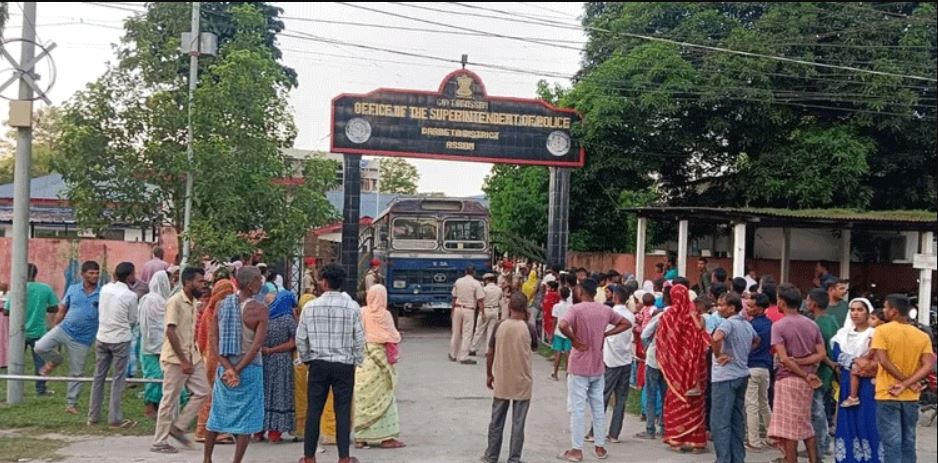DM Monitoring
NEW DELHI: Indian police detained 28 Bengali Muslims by declaring them ‘foreigners’ in Barpeta district, Assam.
The incident, captured in tense and emotional visuals, showed family members weeping uncontrollably as their loved ones were forced onto a police bus. The atmosphere was charged with sorrow and anxiety, with a crowd gathering to witness the scene.
The detainees, one from each of the 28 families, were summoned to local police stations under the guise of signing documents before being taken to the transit camp in Goalpara district, about 50 km away. The Foreigner Tribunals, quasi-judicial bodies established under the Foreigners Act of 1946, had declared these Muslims as foreigners.
The Assam Home Department recently reported to the state Assembly that there are 1,19,570 D-voters in the state, with 54,411 declared as foreigners by the tribunals. Since 2017, 16 such individuals have been deported to Bangladesh. D-voters are barred from voting according to a 1997 order by the Election Commission.
The Foreigner Tribunals were set up to address issues of illegal migration, a major concern in Assam due to fears about preserving indigenous Assamese identity and culture.
Earlier, An elderly Muslim man, Haji Ashraf Munyar, was assaulted by passengers on a train near Igatpuri in Maharashtra’s Nashik district thinking that he possessed beef. The attack occurred on Saturday while Haji Ashraf Munyar was travelling to her daughter residing in Kalyan.
The assault was reportedly fuelled by suspicions that Munyar was carrying beef, a highly sensitive issue in India where the slaughter of cows is seen scornfully and even is banned in several states. Although the police have identified the victim and some of the attackers, no arrests have been made so far.The incident has sparked widespread condemnation from various quarters, including politicians and human rights activists. They have called for swift action against the perpetrators and have expressed concern over the rising cases of mob violence in the country.
Local authorities are under pressure to ensure justice is served, as the incident has added to the growing list of religiously motivated attacks in the region.
Police investigations are ongoing.In recent years, Muslims in India have faced increasing incidents of religious-based violence and discrimination. Reports indicate that communal tensions have led to violent clashes, often resulting in loss of life and property.
Hate crimes, including mob lynchings, have been reported, where individuals are targeted based on their religious identity. These incidents are often fuelled by inflammatory rhetoric and misinformation, creating an atmosphere of fear and insecurity among Muslim communities.
Additionally, there have been instances of systemic discrimination, where Muslims face challenges in accessing education, employment, and housing. Policies and laws perceived as discriminatory, such as the Citizenship Amendment Act (CAA) and the National Register of Citizens (NRC), have sparked widespread protests and concerns about marginalisation. The socio-political climate has exacerbated feelings of alienation and vulnerability among Muslims, highlighting the urgent need for measures to promote communal harmony and protect the rights of all citizens.



